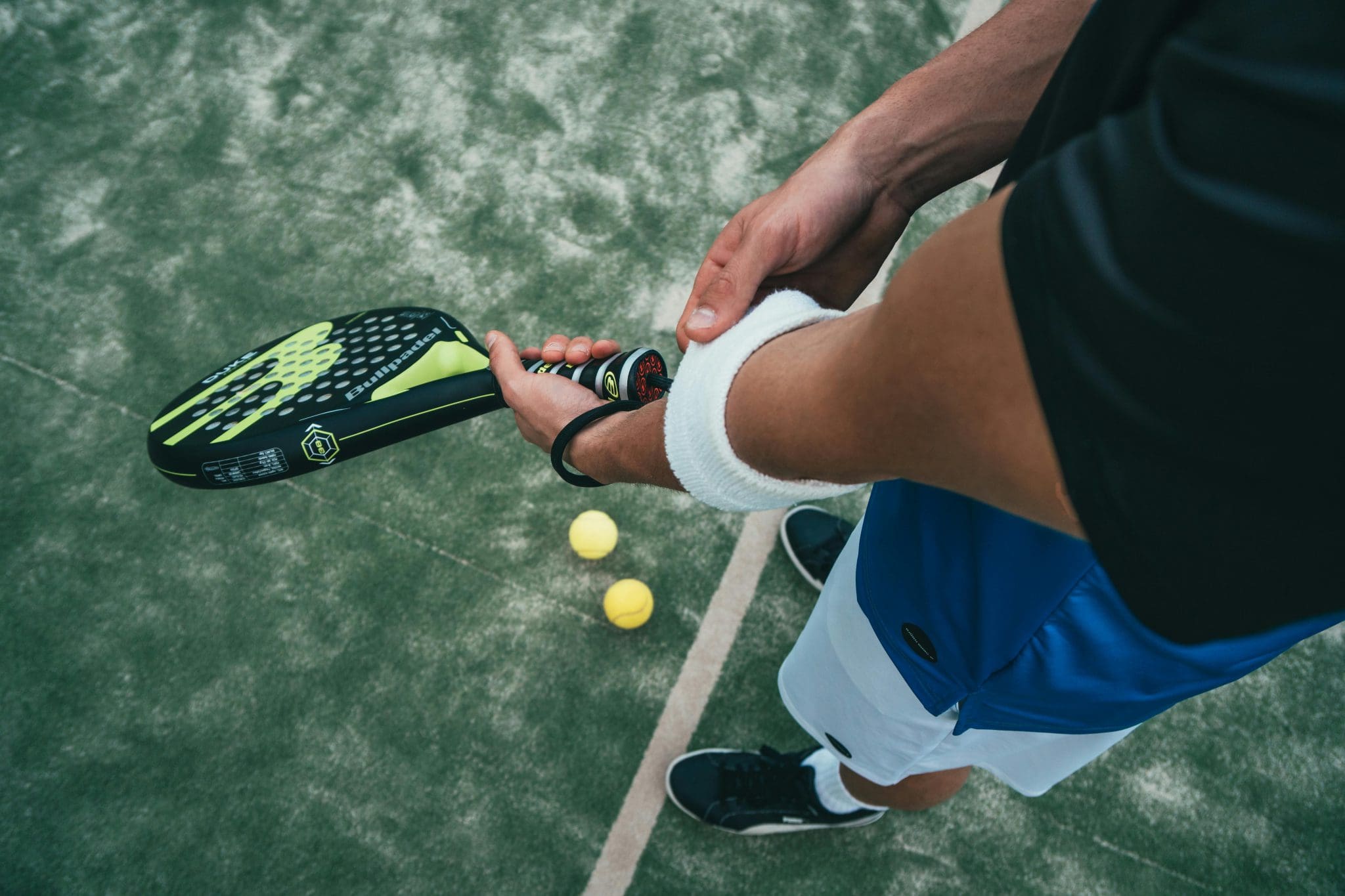Full Disclosure: Clicking on these links could mean a tiny commission for me, at no extra cost to you.
Physical Therapy and Mental Health Benefits
Here’s how sports medicine PT can help with mental health:
Calming manual therapy techniques
Providing massages, gently mobilizing your joints, and addressing sore areas can alleviate pain, reduce swelling, and improve blood circulation. This not only facilitates physical healing but also induces feelings of calmness and reduced stress levels.
Therapeutic exercises brighten perspective
The specific exercises help to strengthen your muscles, improve your flexibility and bring back the natural movement. As you progress, you’ll feel a sense of pride in your achievements and gain greater control over your body. This can also lead to a boost in the mental health department.
Improved Body Awareness and Mindfulness
Knowing exactly where your body is in space is super important for sports! Sports PTs can help you feel your movements better, kind of like training to be more coordinated. This will help you avoid getting hurt again.
This heightened awareness translates to:
- Reduced risk of re-injury: By being more aware of your body’s subtle movements and limitations, you can learn to avoid positions or activities that could cause you to re-injure yourself. This can help ease anxiety.
- Better stress management: Some exercises are like playing a focus game! They help you concentrate on what your body is doing right now, not on worries. This can make you feel calmer and less stressed, both when healing from an injury and playing your sport!
Get Instant Relief, Anytime, Anywhere
Feeling stressed or physically tense? Coolease is your on-the-go relief solution — a cooling cream that helps ease headaches, back pain, tension, and more. Fast-acting and soothing, it’s perfect for calming both body and mind when you need it most.
Building Confidence and Self-Efficacy
Facing an injury can be a blow to confidence, especially for athletes. Sports medicine PT helps you regain control over your body and overcome physical limitations. As you progress through the rehabilitation program and achieve set goals, you experience a sense of accomplishment, boosting your self-efficacy (the belief in your ability to achieve goals). This translates to:
- Improved motivation: Feeling confident in your body’s ability to heal and perform fuels the motivation to stick with the rehabilitation program.
- Enhanced athletic performance: You return to your sport with renewed confidence and a stronger mental foundation by overcoming your injury and regaining strength and flexibility.
Social Support and Connection
While Telehealth Physical Therapy allows for remote care, traditional in-clinic sessions provide an opportunity for social interaction. Working with a therapist and potentially other patients in a supportive environment can combat feelings of isolation and loneliness that can accompany an injury. This sense of connection can further contribute to a positive mental state.
Specific Techniques Used in Sports Medicine Physical Therapy
Sports medicine physical therapists utilize a variety of techniques to address both physical and mental aspects of injury recovery:
- Manual therapy: They use their hands to help you feel better! This might include giving you a massage, gently moving your joints, and working on tight spots to loosen them. This helps ease pain, make your body bend easier, and help your body heal faster. For individuals dealing with circulatory issues or chronic discomfort, seeking advice from a Vein Specialist in The Woodlands can complement physical therapy by addressing underlying vascular concerns, ensuring a more comprehensive recovery.
- Therapeutic exercises: They’ll make a special exercise plan just for you and your injury. These rehabilitation exercises will help your muscles get stronger, make your body bend easier, and help you move the way you used to. This will also make you feel proud of what you’ve accomplished and more in control of improving!
- Stretching: Stretching regularly makes your body bend more easily and move more freely. This helps you heal from injuries faster and also helps you feel calmer and more relaxed! It’s like taking a deep breath for your muscles!
- Balance training: Some exercises require you to work on your balancing skills, like a tightrope walker! This helps your body know where it is in space and how to move smoothly. It also helps you focus on what you’re doing right now, which can be calming and help you avoid getting hurt again!
- Proprioceptive training: Special exercises help your body know exactly where it is and how it’s moving. This is like having a superpower that keeps you from getting hurt again and makes you feel more in control of your body!
Your Essential Guide to Health at Home
The Home Doctor book is your trusted guide to handling common health issues confidently from the comfort of your own home. With simple instructions and expert-backed advice, it’s your go-to resource for everyday wellness and emergency readiness.
Physical Therapy Equipment
Physical therapists use different types of equipment to facilitate rehabilitation and enhance the mind-body connection:
- Resistance bands: These stretchy bands come in different strengths and can be used for all sorts of exercises that strengthen your muscles and make your body bend easier. Using them takes concentration, too, just like doing a puzzle!
- Balance discs: These unstable platforms challenge your balance system, improving proprioception and core strength. The focus required to maintain balance on a wobbleboard can also contribute to a sense of mindfulness.
- Foam rollers: Self-myofascial release with a foam roller can improve muscle flexibility and reduce pain. This self-care practice can also relieve stress and promote relaxation.
- Other equipment may include weights, stability balls, and agility ladders. Each piece of equipment can be used to address specific physical limitations while also potentially improving aspects of mental well-being, such as focus and coordination.
Importance of a Positive Therapist-Patient Relationship
Sports medicine physical therapy is a collaborative effort. Building a trusting relationship with your therapist is crucial for a successful recovery. Open communication allows you to express your concerns and goals, both physical and emotional. A supportive therapist can provide guidance and encouragement throughout the rehabilitation process.
Incorporating Mindfulness Practices:
Physical therapy is a powerful tool, but it doesn’t have to exist in isolation. Consider incorporating mindfulness practices such as meditation, fidget rings or yoga into your routine (You can get 50% off your online yoga membership here). These practices can complement physical therapy by fostering a sense of calm, reducing stress, and promoting body awareness. This holistic approach can accelerate healing and enhance your overall well-being.
Conclusion
In conclusion, nurturing the connection between physical therapy and mental health is like giving your mind and body the ultimate high-five. Athletes, you’ve got this! Whether you’re rehabbing an injury, pushing for peak performance, or simply striving for balance, don’t forget the power of healing inside and out. Pair those physical gains with mental clarity, and you’re unstoppable.
And while you’re at it, why not treat yourself or someone special to some extra self-care? A fidget ring, also known as a spinner ring, to help ease stress during recovery. You can also add in crystals for anxiety, healing stones, or gemstone jewelry to keep your energy grounded and vibes good. Looking for a little extra cheer? Thoughtful gift sets for women or get well soon gifts for men can also bring smiles when they’re needed most.
Additional Resources
At Anxiety Gone, we believe in healing together. We’ve partnered with trusted wellness organizations to bring you the most effective tools, insights, and support. Some links may earn us a commission — always at no extra cost to you.
Join The Club
Connect with our private self-care community for daily support, exclusive tips, and inspiration. Join us today
Talk Therapy
Get matched with licensed therapists online through BetterHelp and begin your healing today. Start now
Hims/Hers
Receive personalized, affordable mental health care + medication from home — no insurance required. Learn more
Mental Health, Right to your Inbox
Subscribe to our newsletter for a place to rest your mental health and find ways to support your journey. Sign up
Emotional Freedom Technique
Tap your way to calm with scientifically backed stress relief. Our readers receive a 14-day free trial! Try EFT now
Mindfulness App
Access 2,000+ guided practices to support your mental health wherever you are + exclusive discount when you upgrade Try it
Online Breathwork
Experience calm and reset your nervous system with guided sessions and receive your first month free . Get started
Find a Helpline
If you need immediate support, visit our directory to find help near you. See helplines









